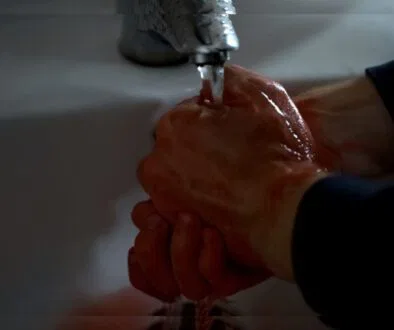Can Charges Be Changed After Arraignment?

Published January 27, 2023
During an arraignment, the defendant is formally informed of the criminal charges filed against them by having the document detailing the charges read out in their presence. Then, judges, in most jurisdictions, remind defendants of their rights; further, bail will also be addressed in the process.
If you’re wondering “can charges be changed after arraignment?” read the article below.
What are the Constitutional Rights of a Defendant?
Both the state and the federal government ensure a defendant’s constitutional rights. These rights are applicable throughout your arraignment and during the duration of the proceedings. These are the rights to:
- A legal counsel
- A speedy trial
- Against self-incrimination
- A jury trial
- The confrontation clause
When can a Defendant Enter a Plea?
Some jurisdictions require the accused to enter a plea following arraignment if the charges against them are not dropped. Acceptable pleas vary by jurisdiction but often include “guilty,” “not guilty,” and pleas in bar, which provide reasons why a trial cannot continue. In certain instances, “no contest” and the Alford pleas are permitted.
When a defendant pleads “guilty,” they admit they recognize their guilt and accept the sentence the presiding judge decides is appropriate. On the other hand, if a defendant enters a “not guilty” plea, they are essentially saying that they are innocent or that they have a good cause for their actions. A trial before a judge will determine whether or not this is the case, and if the court determines they did, they will be found guilty and sentenced accordingly.
A “no contest” plea is equivalent to pleading guilty in court. However, it cannot be presented as evidence in a separate civil case arising from the same incident. “Nolo contendere” (Latin) is another name for a “no contest” plea.

ADVERTISEMENT
Can Charges Be Changed After Arraignment?
After arraignment, charges may be changed. Generally, a prosecutor may alter or add to the charges at any moment before a trial begins. In rare cases, a prosecutor may alter the charges during the course of the trial. Further evidence is needed for this to happen.
If asked, “can charges be dropped at an arraignment hearing?” During an arraignment, the charges against the accused are rarely dropped. In practice, prosecutors rarely drop charges unless there is a convincing reason to do so; this is true for both misdemeanor and felony offenses.
Should a Defendant Attend Their Arraignment Hearing?
Depending on the nature of the charges against them, a defendant may or may not need to show up for their arraignment. A defendant’s lawyer may represent them if they were arrested for a misdemeanor. However, certain crimes, such as domestic violence, still require the defendant to appear at arraignment.
A defendant who has been arrested for a felony must appear for their arraignment. There are exceptions, such as when a judge accepts a written waiver from the defendant. In addition, a defendant is not required to appear in person if arraignment is conducted by video conferencing.
The defendant should bring a photo ID to the arraignment hearing in order to prove their identity and attendance. It is advisable for the defendant to bring any notice of appearance and any additional evidence that may assist their case.
If a defendant fails to appear at their arraignment, they can be arrested. A bench warrant will be issued by the court permitting the police to arrest the defendant and deliver them to court. Failure to attend will result in an additional misdemeanor or felony charge being filed against the defendant.
What’s Next After Arraignment?
Can charges be changed after arraignment? Depending on the trial’s outcome, charges can be changed by the prosecutor, or they may add more to the existing charge. If a court does not dismiss a defendant’s charges during arraignment, the case enters “pre-trial.”
Pre-trial proceedings cover everything before a defendant’s case is brought before a jury, as the names imply; this Includes court appearances, filing motions (e.g., motion to dismiss, motion to suppress), “discovery,” and plea bargains.
The case will proceed to trial if a defendant enters a not-guilty plea. The attorney will evaluate the likelihood of acquittal after reviewing the case and the evidence against a defendant.
Reduce Your Jail Call Costs By Up To 90% Per Minute With GlobalTel
GlobalTel’s inmate calling service lowers jail call per minute rates by up to 90% for jail calls from US facilities. Sign up now and use the special jail call phone number we create for you to eliminate the long distance jail call fees. Try GlobalTel for only $45.99 for 90 days. Make US/domestic and international jail calls at the local rate and stay connected to your incarcerated loved ones for less. Learn more about how to sign up for calls from inmates here.

This Content Is Fact Checked
Our esteemed team of specialists has thoroughly validated the accuracy of this information. Discover further details about the rigorous editorial guidelines for our website here.
ADVERTISEMENT

About The Author
Krizzia Paolyn is an SEO Specialist with a bachelor’s degree in Psychology. It has always been her passion to share her voice, and at the same time, to encourage other people to speak up.




